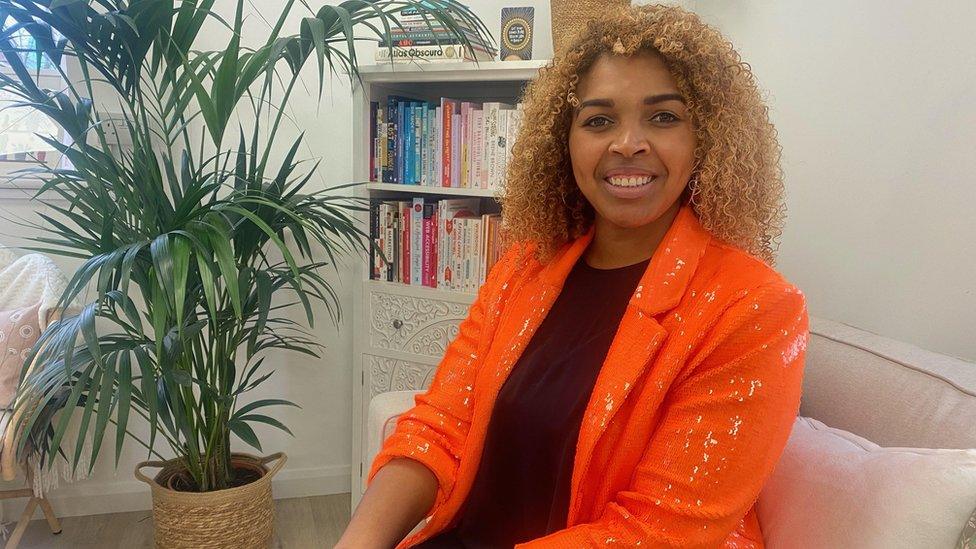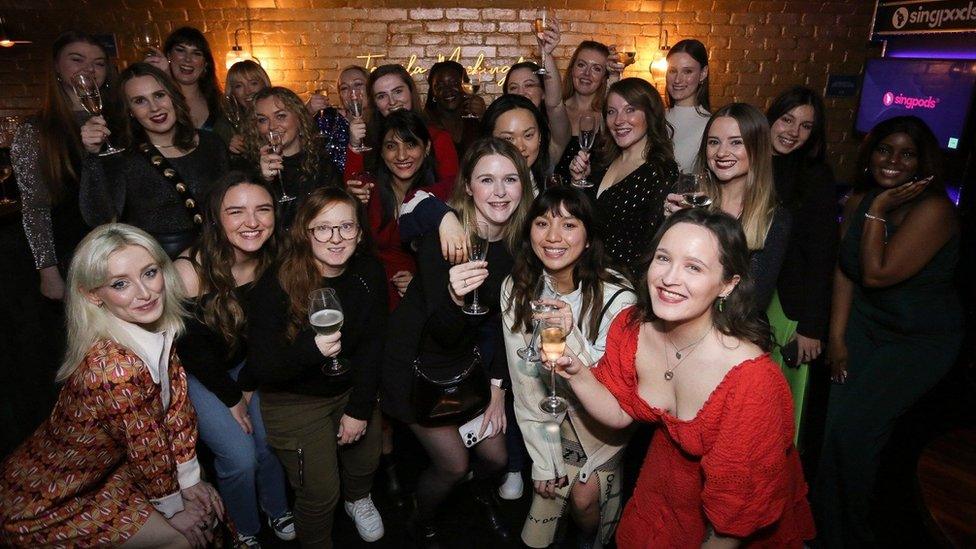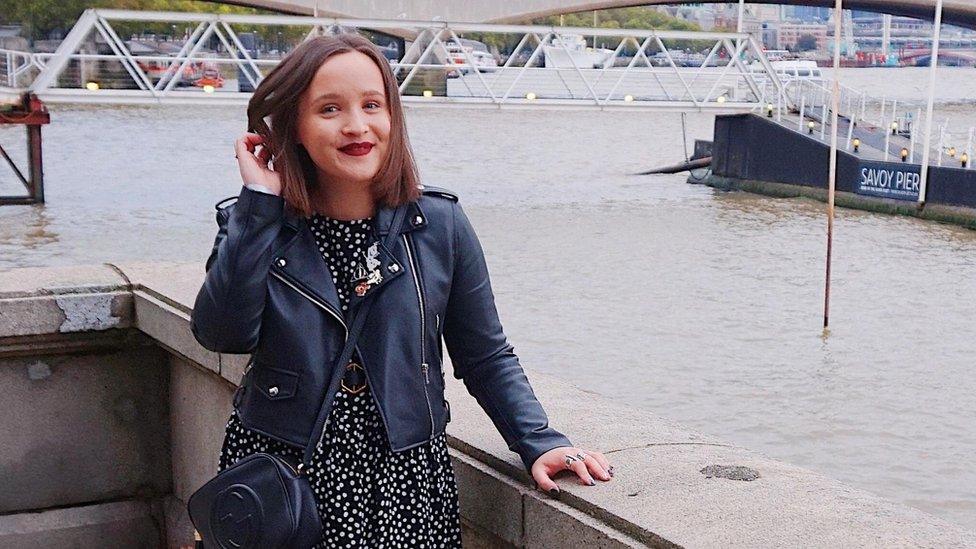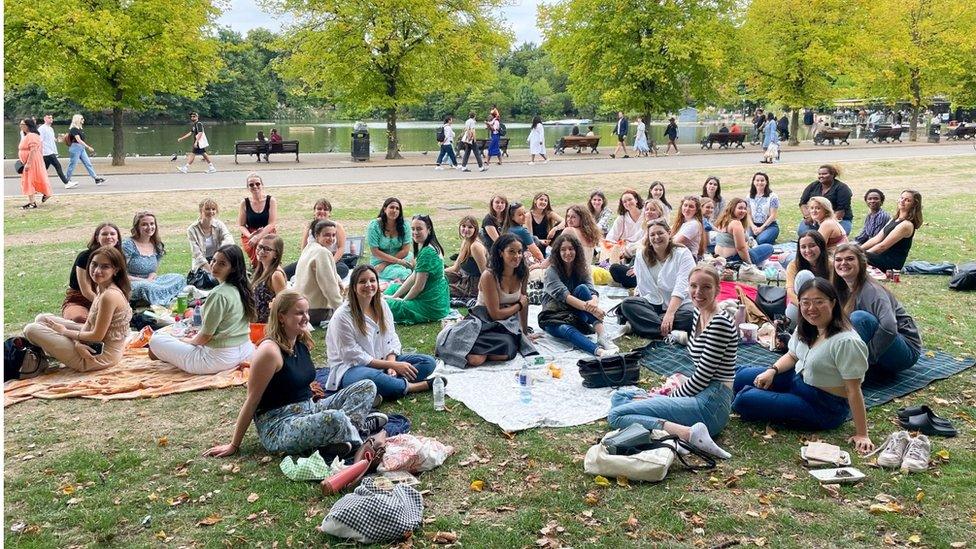The Lonely Girls Club: 'I only saw people on a screen'
- Published

Charelle began to feel lonely after moving back to Nottingham to run her own business
Half of the UK population admits feeling isolated at some point, with 7% of women reporting feelings of chronic loneliness. But a new community of "lonely girls" is determined to prove they are far from alone.
It's Friday night. A time when many people get excited for the weekend ahead. Not 35-year-old Charelle Griffith.
"I hate this idea of working really hard, get to the end of the week, it's Friday night and I'm just going to be in the house by myself. It's not a great feeling."
Charelle is chatty and fun - a self-confessed extrovert, who runs her own marketing business in Nottingham.
She also suffers from moments of extreme loneliness, something she admits she finds embarrassing to share with people.
"People don't expect you to be lonely," she said. "They say to me 'but you're always happy and smiley', but there are different ways you can feel lonely.
"I have really good friends that live across the country but in terms of someone in Nottingham that I could see and have really good times with, that was missing in my life."

The first Lonely Girls Club was founded in London
Charelle realised she was experiencing loneliness in 2021. During the Covid pandemic she had been made redundant from a job in London's West End.
She moved back to her home city to start her own business, but the isolation was hard.
"I went from having a job where I'd be around people every single day," she said. "I'd go to the theatre and network in the evenings, to mostly spending a day by myself and only seeing people on a screen. I don't think it's easy as an adult to make new friends."
Charelle's experiences are not unusual. Graduate Holly Cooke also struggled with loneliness after following her "big dreams" of moving to London - and she decided to find a way to help herself and others.
"I got here and I didn't know a single person, I didn't have anyone to go for lunch with or go to the theatre with, and it gets lonely pretty quickly," she said.

Holly says the club now has tens of thousands of members
The Lonely Girls Club was borne out of Holly's "personal need to connect and make friends and find people to hang out with".
She founded it on Facebook five years ago, with members organising events in London.
Due to its popularity, a new branch was established in Manchester. Since then, the club has grown "absolutely massively" and now has 70,000 members - with ages ranging from 18 to 60.
More groups are now forming across the country.
Holly says: "Loneliness comes in all shapes and sizes and can impact people at various points in their life, at various ages… and for a variety of different reasons.
"It impacts all areas of you life, your mental health, your physical health, your motivation to go out and do things, it can be pretty all encompassing."
'All walks of life'
"I think this desire for friendship, this need for connection is something which people are becoming much more comfortable with talking about and saying 'yes I am lonely but I don't want to stay lonely'', and we are here to help with that," Holly added.
Charelle, who joined Nottingham's first Lonely Girls Club event in January, believes it helps to "normalise" loneliness.
"Rather than you feeling like you're the only lonely person in the city, which then makes you feel worse, actually you realise there are plenty of people who are also lonely," she says.
She now feels positive about the future.
"There were such a variety of people there and from all walks of life," she added.
"I like dancing and met others who like dancing. I feel like I'll find people I connect with and can take up hobbies with. I had a lovely time."

Follow BBC East Midlands on Facebook, external, on X, external, or on Instagram, external. Send your story ideas to eastmidsnews@bbc.co.uk, external.
Related topics
- Published24 March 2023
